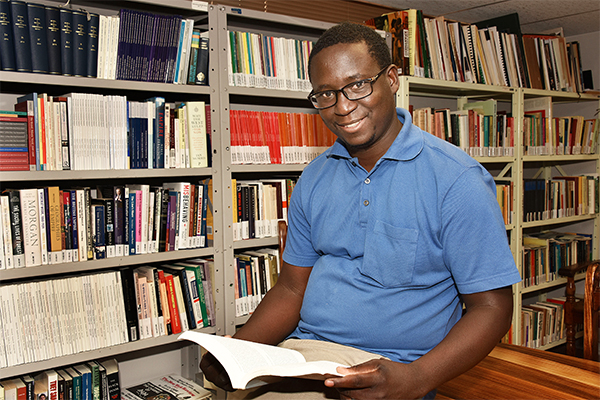Latest News Archive
Please select Category, Year, and then Month to display items
27 March 2023
|
Story Valentino Ndaba
![]()
This year, the University of the Free State will witness one of its biggest graduation seasons yet. A total of 19 ceremonies will take place this April. The Qwaqwa Campus will host four ceremonies from 14 to 15 April and the Bloemfontein Campus will host fifteen celebrations from 18 to 22 April 2023.
A grand total of 8 628 graduates will walk across the stage throughout the seven days. In addition, four honorary doctorates will also be conferred. Prof Stephen Brown will be awarded the Council Medal, Prof Mattheus Lötter is to receive the Chancellor's Medal.
Qwaqwa Campus Graduation Ceremonies

Bloemfontein and South Campus Graduation Ceremonies

For more information on guides and attires, click here.
Download the graduation schedule
here.
Land a fertile field for historians
2017-12-25

Dr Admire Mseba, historian and researcher in the International Studies Group (ISG).
Photo: Charl Devenish
The use of land and the economics of Southern Africa at present is a contentious subject at almost every level of society. A historian and researcher who revels in happenings in these two areas, is Dr Admire Mseba, a postdoctoral research fellow in the International Studies Group (ISG) at the UFS.
Dr Mseba grew up in the Mberengwa region in southern Zimbabwe, known for cattle farming and mineral mining. While at the University of Zimbabwe, he became interested in economic history and archaeology, and completed his PhD at the University of Iowa in the USA. During his time there, Dr Mseba also became passionate about environmental history.
A historian's ability to think and engage critically on diverse subjects drew Dr Mseba to his field. Currently, he is busy with three research projects. Firstly, he is working on a book on social relations, about access to land in Zimbabwe. He is also examining regional and national efforts to control migratory pests during the 20th century, in particular, the red locust. In collaboration with a colleague at the ISG, Dr Mseba is also researching monetary systems in central Africa, covering the present-day countries of Zimbabwe, Malawi, and Zambia.
Dr Mseba believes future research opportunities in the domains of economic and environmental history abound. For one, the land question has been very topical in Zimbabwe for more than a decade—as it is now in South Africa—and needs more scrutiny. Regarding agrarian pestilences, he indicates the recent phenomenon of armyworm invasion. “There are so many opportunities for historians to investigate. There are so many ways to think about these things and trying to put it in perspective.”